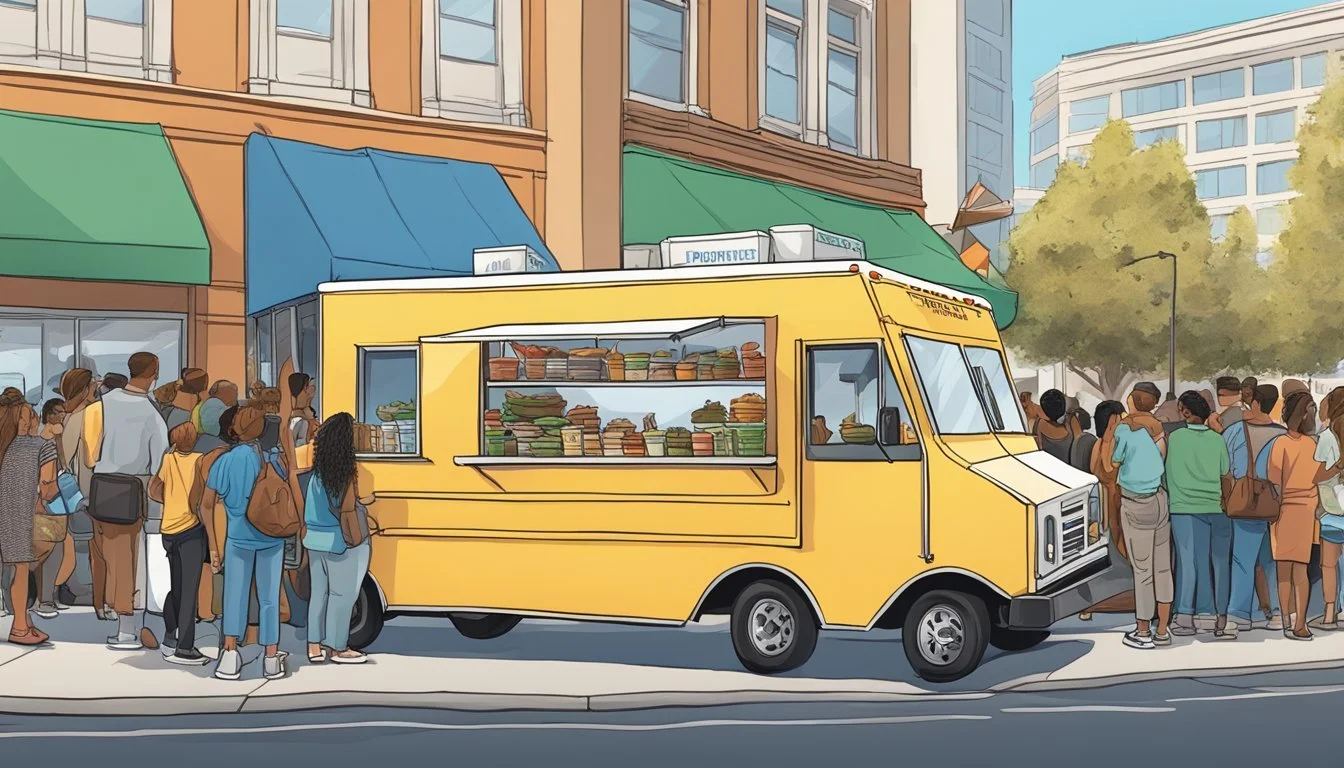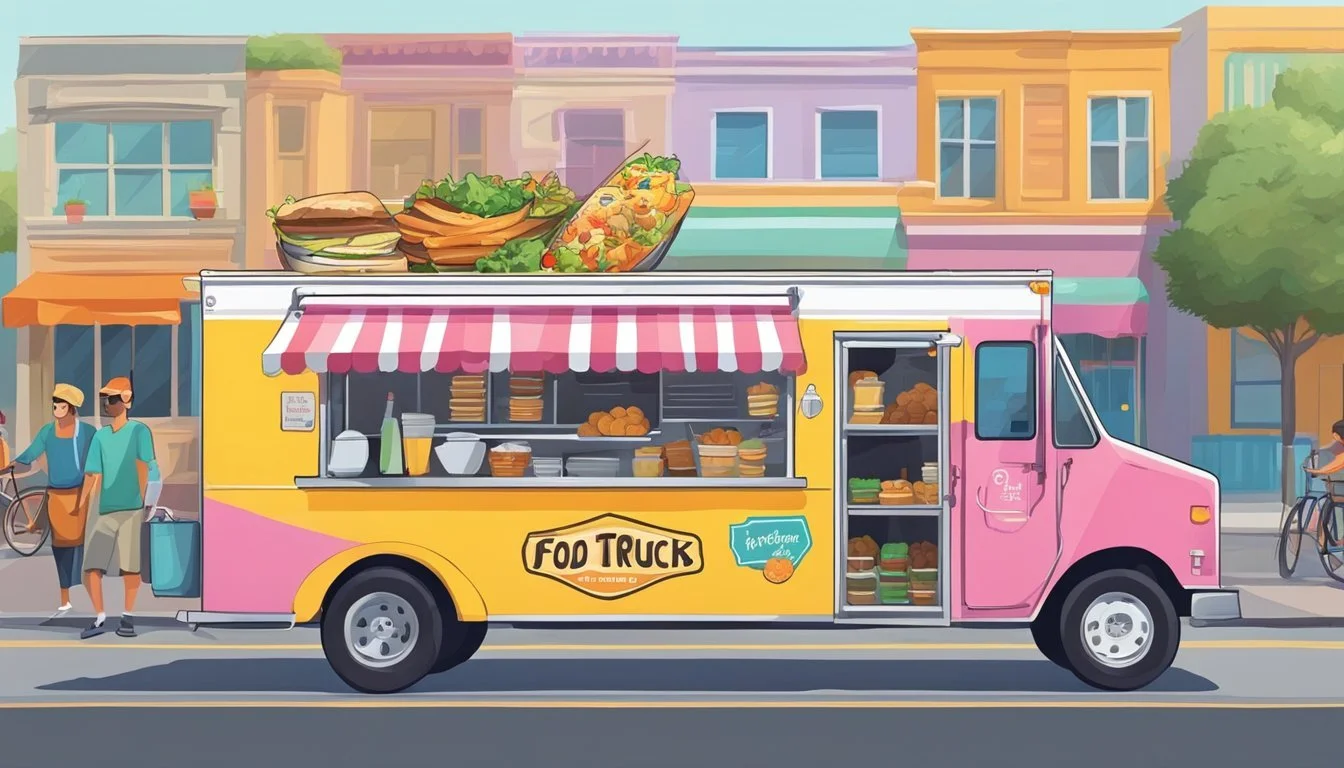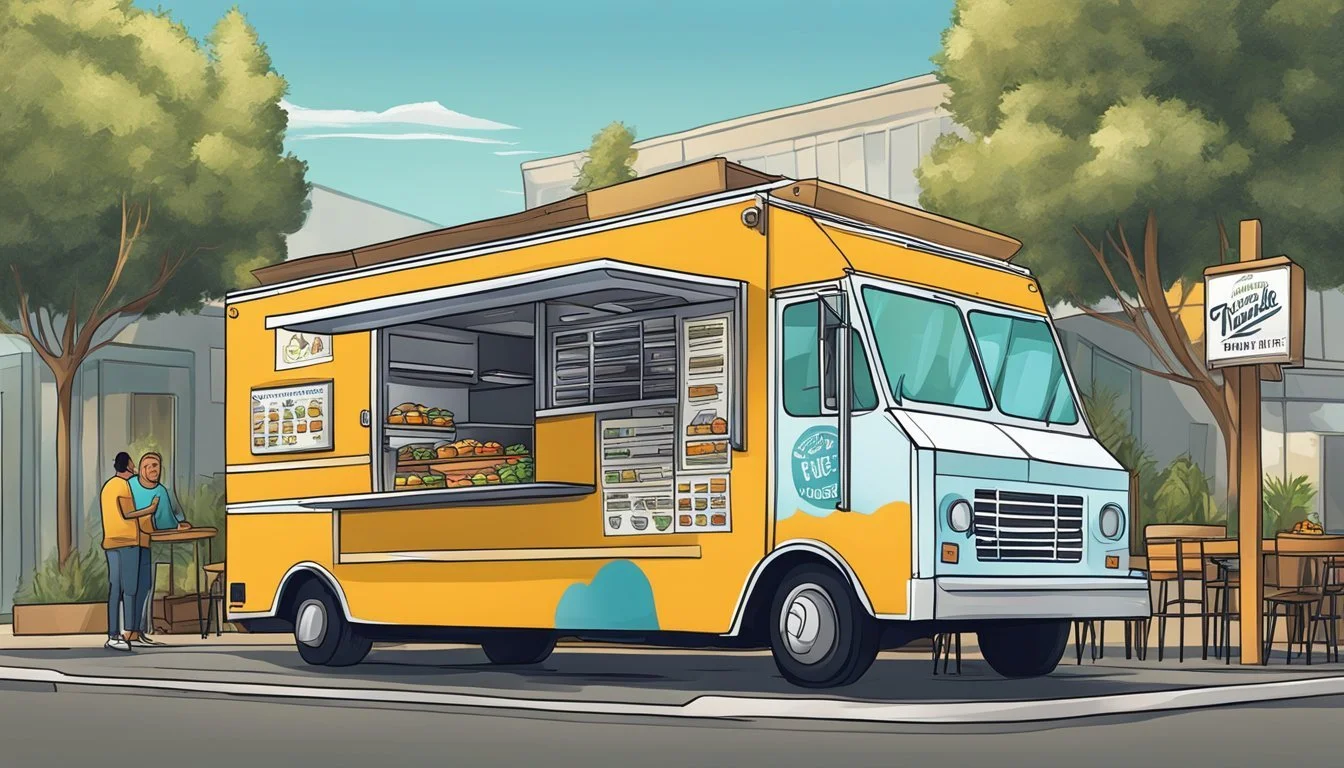Food Truck Laws Fremont, California
Essential Regulations for Vendors
Food trucks in Fremont, California, operate within a framework of regulations designed to ensure public safety, fair business practices, and compliance with health standards. These mobile eateries have grown in popularity, offering a variety of culinary delights to locals and visitors alike. Yet, to maintain the thriving food truck culture in Fremont, operators must navigate through a series of laws laid out by the city and state.
The City of Fremont requires food trucks to obtain specific permits and adhere to operational guidelines. A Vendor/Solicitor Permit is a necessity for food truck operators, and it stipulates that such permits are valid for one year, non-transferable, and must be renewed annually. Furthermore, California's statewide regulations necessitate additional licenses, such as a vehicle license for the truck and food handling permits for the employees, ensuring that food safety and sanitation measures are met at all times.
A comprehensive understanding of these laws and regulations is crucial for anyone looking to launch or operate a food truck in Fremont. From the specifics of menu labeling to the logistics of waste disposal, food trucks must comply with the same rigorous standards that apply to traditional brick-and-mortar restaurants, reinforcing the state's commitment to health and safety within the mobile food industry.
Setting Up Your Food Truck Business
In Fremont, laying the groundwork for a food truck business requires careful planning and attention to specific legal and financial steps. Complying with California's regulations is paramount.
Creating a Business Plan
Every successful food truck business in Fremont starts with a detailed business plan. This document should outline the food truck's concept, menu, targeted audience, marketing strategy, and projected financials. A strong business plan is also crucial for securing financing.
Choosing a Business Entity
Selecting the appropriate business entity affects liability and tax obligations. A Limited Liability Company (LLC) is a popular choice among food truck owners in California, offering protection of personal assets and potential tax advantages. Alternatives include sole proprietorship and partnership, each with distinct implications.
Registering the Business Name
The business name must be registered with local authorities. In Fremont, a Doing Business As (DBA) name ensures legal operation under the chosen name. It's vital for creating a brand identity and for legal transactions.
Tax and Financial Requirements
To operate in Fremont, the business must have a tax identification number, known as an Employer Identification Number (EIN). Establishing a credit profile is essential for future financing needs, including options like the California Small Business Loan Guarantee Program which assists in securing capital for new businesses.
Legal Requirements and Licensing
Operating a food truck in Fremont, California, involves navigating through a spectrum of legal requirements and acquiring the proper licenses. This section outlines the imperative steps and documentation food truck operators must secure to align with state and local regulations.
Obtaining the Business License
To commence operations, food truck owners must first obtain a business license from the City of Fremont. This license signifies the legitimacy of the business and is mandatory for any commercial activity. The cost of the business license may vary based on the scale of operation, and the process can generally be started online.
Health and Safety Permits
Operating a food truck also necessitates a health permit from the Alameda County Environmental Health Department. This permit ensures that the food truck adheres to the health and safety regulations mandated by the county and requires an inspection of the food truck to confirm compliance with these standards. Moreover, all food truck employees must possess a food handler permit, displaying their knowledge in maintaining food safety, which can be obtained through a state-approved food safety certification program.
Additional Permits and Certifications
Depending on the specific operational needs, additional permits such as a seller’s permit from the California Department of Tax and Fee Administration may be required for tax purposes. Food trucks that plan to gather as part of a group event might need a group site permit. It is essential to check with the local laws for any special permits that might be necessary for certain locations or types of vending.
Compliance with Local Laws
Food truck operators must ensure they comply with all Fremont city ordinances, including but not limited to, waste disposal regulations and the use of a commissary, which is a licensed commercial kitchen where food can be safely prepared and stored. Understanding and adhering to these local laws are vital for lawful operations and to avoid penalties or shutdowns.
Operational Aspects of Food Trucks
In Fremont, California, food trucks face specific operational requirements, from the configuration of the kitchen and the equipment they use, to how they handle sourcing and storage of ingredients. Effective waste management is crucial, and staff must be adequately trained and certified.
Kitchen and Equipment Needs
The heart of a food truck lies in its kitchen and the cooking equipment it houses. Food trucks in Fremont must operate with a well-planned layout to efficiently utilize space. They require a range of commercial kitchen equipment approved by health regulations—this includes grills, stoves, and refrigeration units. Each food truck should also maintain a fire extinguisher and a first aid kit as part of their safety equipment.
Sourcing and Storage
Food sourcing must align with local health codes; this means food trucks often work with approved vendors for quality ingredients. When it comes to storage, refrigeration is key to keeping ingredients fresh, especially when handling meat and dairy products. Dry goods storage should be secure and impenetrable by pests, and all storage areas must be clean and organized to prevent contamination.
Waste Management
Efficient waste management practices are mandated to ensure hygiene and environmental responsibility. Food trucks must not only dispose of waste properly but also provide clear signage for patrons to do the same. A visible trash receptacle should be present, and greywater from the kitchen must be disposed of according to Fremont regulations.
Staff and Training
All staff working in a Fremont food truck needs a food handler’s permit, proving they have passed the state-approved Food Safety Certification exam. Beyond this certification, regular training on equipment operation, customer service, and hygiene practices is essential to maintain high standards. Proper uniform and grooming also reflect professionalism and adherence to health codes.
Marketing and Business Growth
Fremont's dynamic food truck scene demands a robust strategy for marketing and business growth. Food truck owners must establish a strong brand identity, leverage online platforms, and engage customers to sustain and expand their operations.
Brand Identity and Marketing
A compelling brand identity is the cornerstone of any food truck's visibility and appeal in Fremont. Owners need to focus on distinct logos, catchy truck designs, and consistent messaging across all materials. Specific strategies include creating eye-catching menus and offering unique dishes that stand out in a crowded market. Strategic partnerships with local businesses and event participation are key methods for driving brand exposure and customer reach.
Online Presence and Social Media
In today's digital age, an impactful online presence can propel a food truck's growth exponentially. Owners should develop a user-friendly website that highlights their menu, location, and hours. Search engine optimization is critical for ensuring that potential customers find the food truck when looking for dining options in Fremont. Furthermore, a strong social media strategy can create buzz and foster a sense of community. Engaging content, such as behind-the-scenes looks and customer shoutouts, paired with consistent posting across platforms like Instagram and Facebook, raises awareness and can drive foot traffic.
Website Essentials
Easy navigation
High-quality images
SEO optimization
Social Media Strategy
Regular updates
Interactive content
Utilization of local hashtags
Customer Engagement and Feedback
Engaging with customers is more than a service; it's an opportunity for growth. Food truck owners in Fremont should prioritize customer interaction both in person and online. Encouraging customers to leave reviews on platforms like Yelp helps build credibility and informs improvements. It's vital to respond to both positive and negative feedback professionally, demonstrating commitment to customer satisfaction. By acting on customer suggestions and celebrating community feedback, food trucks can foster brand loyalty and encourage repeat visits.
Customer Engagement Tactics
Prompt responses to online reviews
Incentives for feedback
Active listening to customer preferences
Location Strategy
When launching a food truck in Fremont, California, the strategy for choosing a location is pivotal to success. Food truck owners must identify welcome spots, understand restrictions, and ensure they have the appropriate permits for parking.
Identifying Ideal Locations
Food truck operators should prioritize areas with high foot traffic and visibility to maximize customer reach. Proximity to offices, shopping centers, and entertainment venues can influence the influx of potential customers. Food trucks in Fremont must also consider the preferences of their target demographic when selecting locations to station their mobile food facility.
Understanding Location Restrictions
Navigating regulations is essential for legal operation. Fremont has specific areas where food trucks can operate, dictated by municipal code and zoned districts. Operators need to be aware of these location restrictions and comply with the local laws. It's also important to note statewide changes, such as those outlined in the updated vendor laws in California for 2023.
Securing Parking and Permits
Securing legitimate parking spaces and the correct permits is crucial. Food trucks in Fremont must obtain a mobile food facility permit as well as any additional parking permits required for the specific locations they choose to operate. Compliance with regulatory requirements will avoid fines and ensure that the food truck can serve customers without interruption.
Food Truck Design and Maintenance
In Fremont, California, food trucks are subject to specific regulations that pertain to their design and ongoing maintenance. These regulations ensure that trucks are both appealing to the consumer and comply with safety standards.
Vehicle Customization and Branding
Design: A food truck in Fremont must have a design that meets the local ordinances and fits within the guidelines set by the American National Standards Institute. Attention to detail in both aesthetic appeal and functionality is crucial. Branding elements like logos and color schemes should be professionally incorporated into the vehicle's design, ensuring that it stands out while also clearly identifying the designated food facility.
Maintenance and Safety Inspections
Maintenance: Regular maintenance is necessary to keep a food truck operating smoothly. Beyond engine and mechanical upkeep, food trucks must adhere to strict sanitation standards, and all equipment used for food preparation must be maintained according to health department regulations.
Safety Inspections: These vehicles are required to pass safety inspections conducted by the Fremont Fire Department. Inspections focus on ensuring that electrical wiring, gas lines, and appliances are in good condition and that fire suppression systems are in place and operational. Adequate insurance is also a key requirement, with policies covering both the vehicle and its operation as a mobile food facility.
Regulatory Compliance
In Fremont, California, food truck operators must navigate a variety of regulations to maintain compliance with local laws. These include meticulous health inspections, adhering to zoning laws, and following environmental regulations, each designed to ensure public safety and community well-being.
Health Inspections and Food Safety
In Fremont, food trucks are subject to regular health inspections to ensure that they meet all food safety standards. Operators are required to have a food handling permit and someone with such a permit must be present during operating hours. Critical factors include proper food storage, handling, and preparation practices to prevent any health risks to the public.
Zoning Laws and Restrictions
Food trucks in Fremont must comply with specific zoning laws that dictate where they can operate. This includes adherence to group site permit requirements for two or more food trucks operating together. Local ordinances are in place to balance commercial activities with community space utilization, taking into account traffic, noise, and neighborhood characteristics.
Environmental Regulations and Pollution Control
Environmental regulations are enforced to minimize pollution and promote sustainability within the food truck industry. Food truck operators must limit their environmental impact by managing waste effectively and reducing emissions. Compliance with these regulations is crucial to preserving Fremont's environmental health and aligns with California's broader commitment to pollution control and ecological preservation.
Financial Management and Growth
Effective financial management is crucial for the sustainability and growth of food truck businesses in Fremont, California. Owners must adeptly manage both costs and revenue to ensure profitability and facilitate potential expansion, franchising, attracting investors, and securing loans.
Managing Costs and Revenue
Food truck operators in Fremont need to have a solid grasp on their financials. Costs should be meticulously tracked, including expenditures for ingredients, permits, vehicle maintenance, and staffing. Revenue should be monitored through daily sales records and analyzing peak hours. Utilizing software for bookkeeping can simplify this process and reduce errors. To enhance profitability, owners may consider strategies such as:
Bulk purchasing to reduce ingredient costs.
Dynamic pricing during high-demand events or hours.
Exploring Expansion and Franchising
Once a food truck has established a strong market presence with consistent revenue streams, exploring expansion can be the next step. Expansion can take many forms, such as adding additional trucks or considering franchising. Franchising allows for growth with less capital investment from the owner, as franchisees cover startup costs. However, thorough market research and a comprehensive business model are essential for successful replication.
Attracting Investors and Securing Loans
Attracting investors requires a robust business plan showcasing the food truck's performance and growth potential. Clear financial forecasts and a demonstration of a solid understanding of the Fremont food truck market will be key. Securing loans often requires detailed financial records and a strong credit history. Food truck owners might explore diverse financing options, including:
Traditional bank loans.
SBA-backed loans catered to small businesses.
Local grants or business competitions.
Food truck owners in Fremont who pay close attention to the fine balance of their financials position themselves well for fostering business growth and exploring new opportunities in the industry.
Unique Considerations for Fremont Area
When operating a food truck in Fremont, California, business owners must navigate specific regulations and local resources dedicated to the food truck industry. A clear understanding of these considerations is essential for compliance and success in the Fremont area.
Fremont Food Truck Specific Laws
In Fremont, food truck permits are a necessity for all mobile food vendors. The City of Fremont requires food trucks to obtain a Vendor/Solicitor Permit before engaging in business. This includes single food trucks as well as groups of food trucks, which require a group site permit. Further, these permits are conditioned upon following state law revisions to ensure all vending and commercial/charitable solicitation activities are compliant with current regulations.
Local Resources and Support
Food truck businesses in Fremont have access to a wealth of local resources for support. This includes guidance from government agencies such as the City of Fremont’s Economic Development Office, which can assist with navigating local ordinances. Additionally, food truck owners can find support from regional food truck associations, which offer valuable networking opportunities and industry-specific advice tailored to businesses operating within Fremont and the broader California region.









